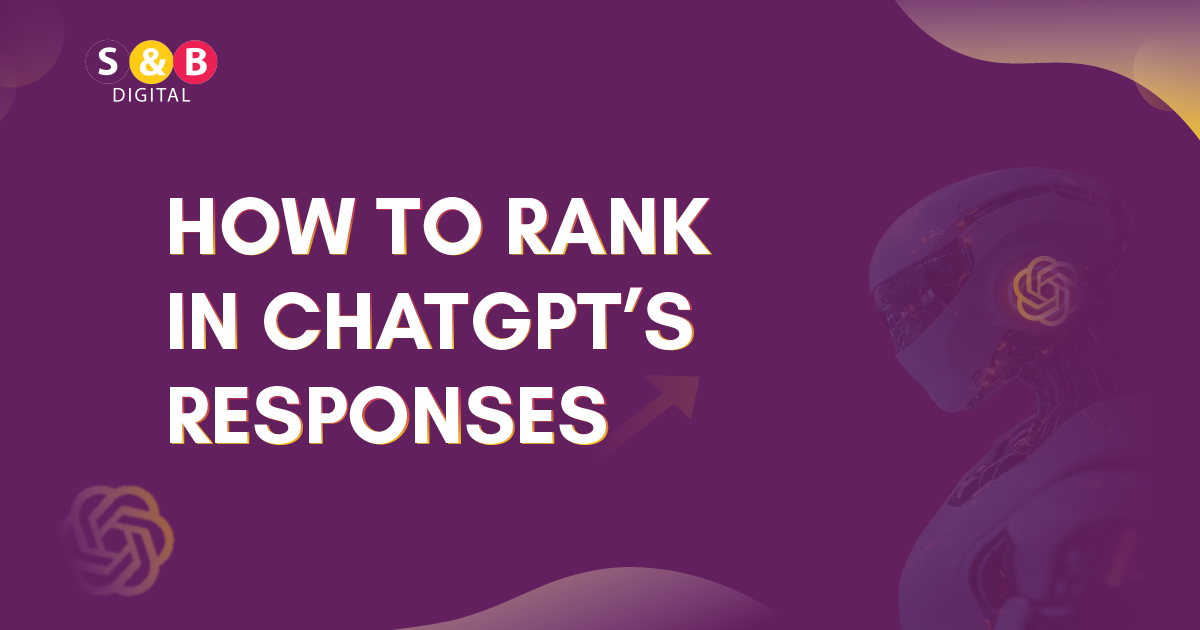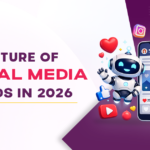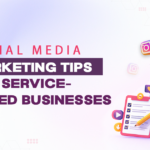In the digital age, search engines are no longer the only gateway to information. AI-driven platforms like ChatGPT are quickly becoming a go-to source for answers, advice, and recommendations. Just like businesses once focused on ranking in Google’s search results, today’s challenge is understanding how to rank in ChatGPT’s responses.
This blog will guide you through how ChatGPT selects and presents information, why visibility in AI-generated responses is important, and what strategies you can use to increase your chances of being included.
Why Ranking in ChatGPT Matters
When users ask ChatGPT for advice, whether it’s about the best marketing agencies in Kolkata, how to cook a specific recipe, or what tools to use for SEO, they often rely on the answers directly instead of going back to Google.
That means if your business, content, or brand isn’t visible to ChatGPT, you might be missing out on a new stream of traffic and potential customers. In fact:
- AI-driven answers often act as a shortcut for decision-making.
- Being mentioned by ChatGPT builds credibility and authority.
- Businesses that adapt early to this trend gain a competitive edge.
How ChatGPT Generates Responses
Unlike Google, ChatGPT doesn’t “crawl” the internet in real time for every query. Instead, it draws from:
- Pre-trained Knowledge – Information it learned during training, up to a specific cutoff date.
- Web Search Integrations – For newer models, plugins or browsing tools may allow pulling in fresh data.
- Patterns of Authority – ChatGPT tends to surface brands, sources, and information that are widely recognized, reliable, and frequently mentioned.
This means that if you want your brand or website to show up in ChatGPT’s responses, you need to build strong digital signals that the model is likely to recognize and trust.
Key Strategies to Rank in ChatGPT’s Responses
1. Strengthen Your Online Authority
AI models rely heavily on authority signals. If your brand is consistently mentioned across reliable sources, ChatGPT is more likely to include it.
- Get featured in high-authority websites (news, industry blogs, directories).
- Publish expert content on your own site that positions you as a thought leader.
- Encourage mentions from other websites and creators in your niche.
Tip: Aim for quality mentions instead of just backlinks. AI recognizes reputation, not just SEO signals.
2. Optimize for Queries
ChatGPT thrives on natural language. Unlike traditional keyword stuffing, you should structure your content in a way that answers full questions.
For example:
- Instead of targeting: “Best digital agency Kolkata”
- Write content like: “What is the best digital marketing agency in Kolkata?”
Adding FAQ sections, Q&A blog posts, and conversational-style content makes it more likely that AI will pick up your answers.
3. Build a Strong Brand Presence
AI tools like ChatGPT lean toward well-known brands because they are seen as trustworthy.
- Keep your Google Business Profile updated.
- Be present on major social platforms (LinkedIn, Twitter, Instagram).
- Ensure consistent branding (name, logo) across all digital assets.
If people are talking about your business online, ChatGPT is more likely to notice.
4. Leverage Structured Data
While ChatGPT isn’t a search engine crawler in the same way as Google, structured data still matters. It helps AI models recognize and categorize your content correctly.
- Add schema markup to your site (reviews, FAQs, local business info).
- Use clear titles and meta descriptions that define what your content is about.
- Make your website easy to scan with headings and bullet points.
5. Reviews and Mentions
User-generated content (UGC) plays a major role in visibility. Positive reviews, testimonials, and online mentions make your brand appear more authentic.
- Ask happy customers to leave reviews on platforms like Trustpilot, Google, or industry sites.
- Encourage discussions about your brand on forums, Q&A sites, and social media.
- Participate in community-driven platforms like Reddit and Quora.
6. Stay Updated with AI Trends
ChatGPT and similar AI tools are evolving rapidly. Today, the focus might be on authority mentions, but tomorrow it could involve deeper integration with live data.
Keep track of:
- OpenAI updates and new features.
- How search engines (like Google’s SGE – Search Generative Experience) interact with AI.
- New AI-powered directories and listing platforms.
Being adaptable will help you stay ahead of competitors.
Conclusion
Ranking in ChatGPT’s responses isn’t about tricking the system. It’s about being recognized as a trusted, authoritative, and helpful source of information.
To summarize:
- Build online authority through quality mentions and content.
- Write conversational, question-focused content.
- Strengthen your brand presence across platforms.
- Use structured data and encourage reviews.
- Stay updated with the latest AI trends.
If you approach it strategically, ChatGPT can become a powerful channel for visibility, authority, and customer acquisition.






